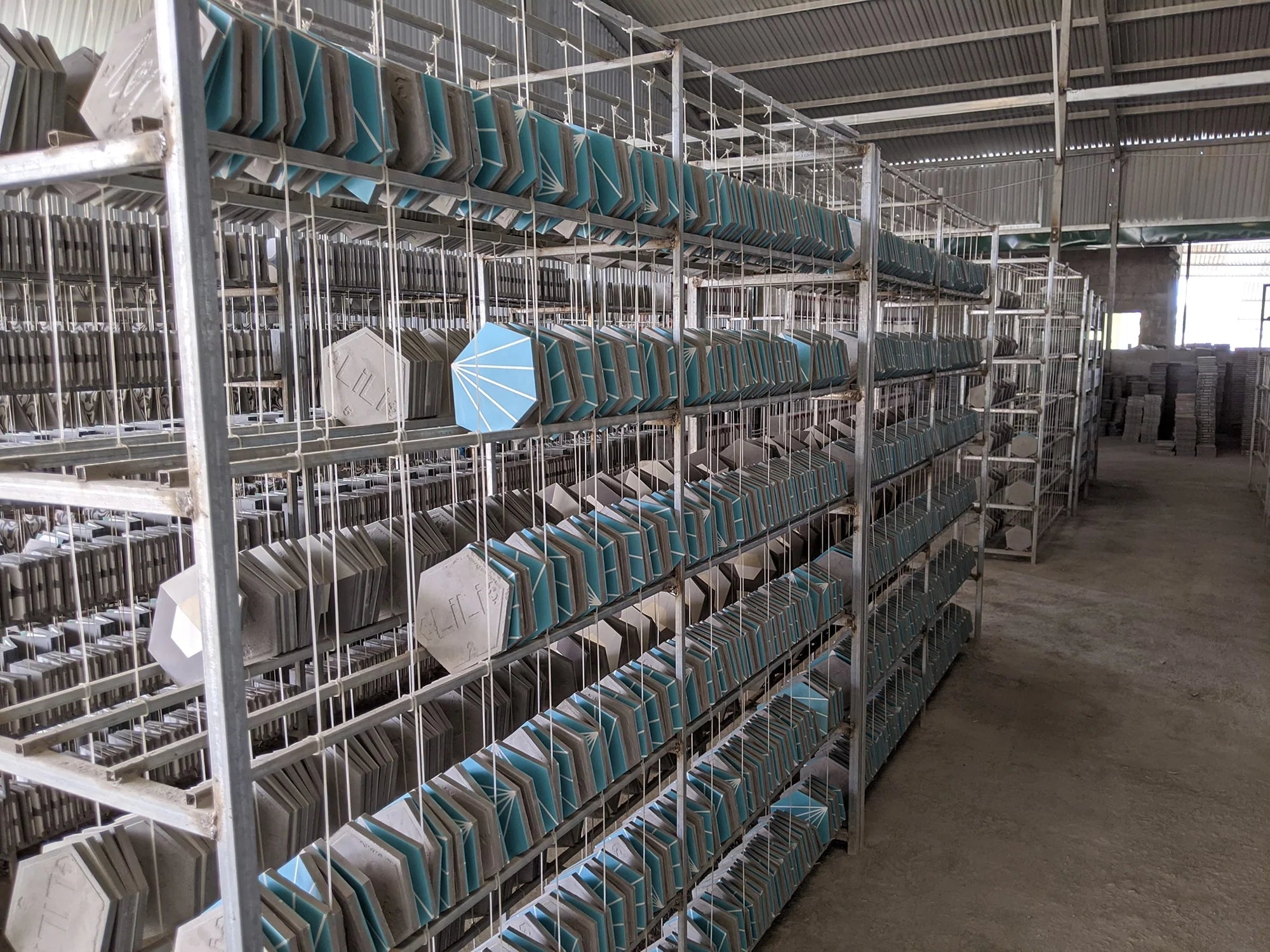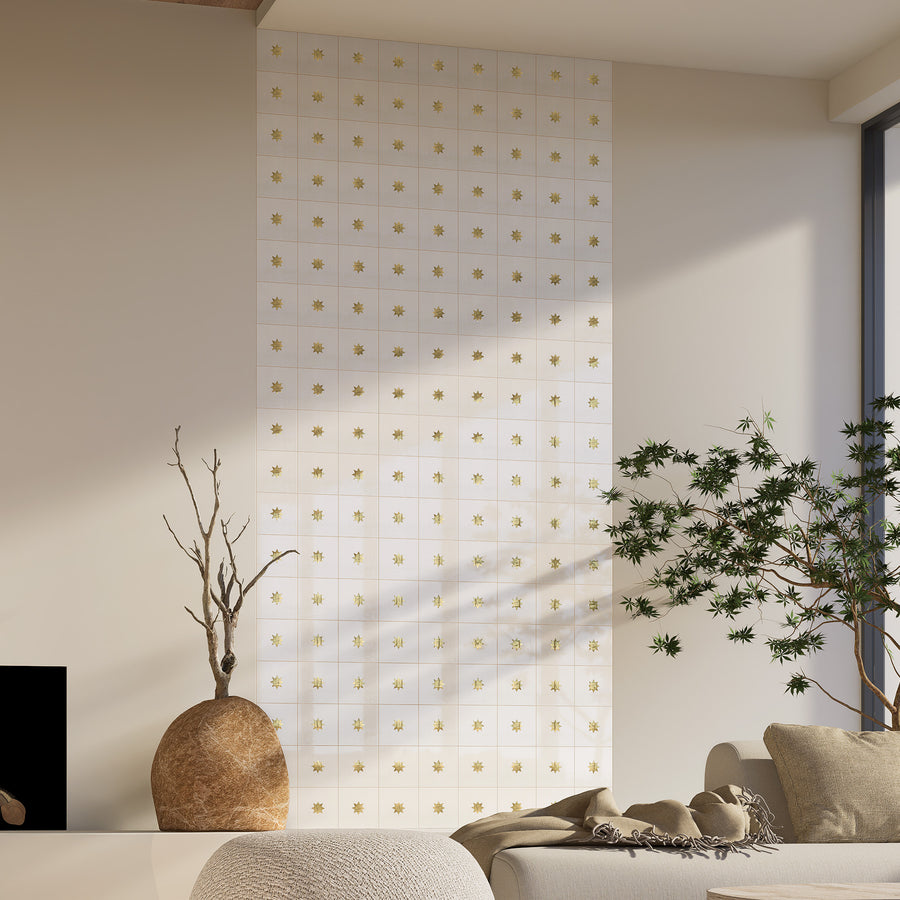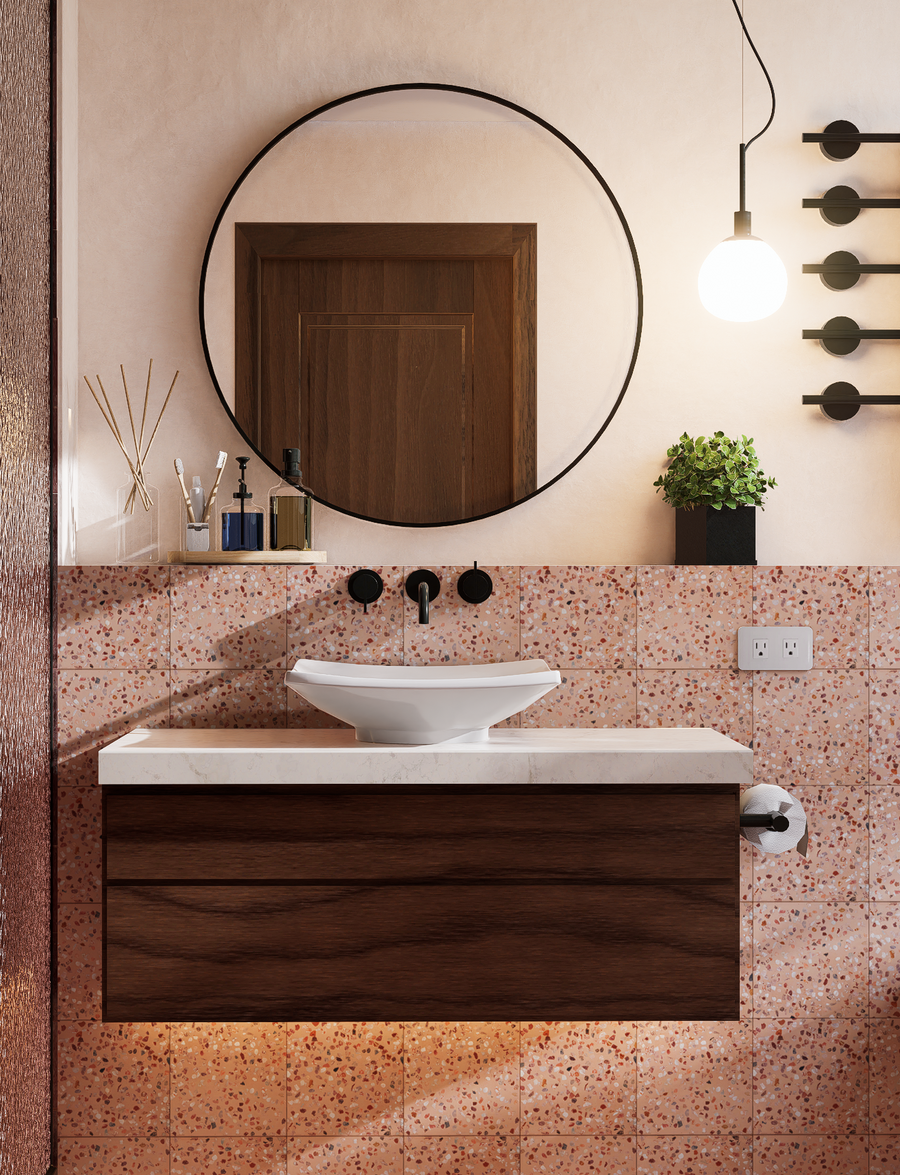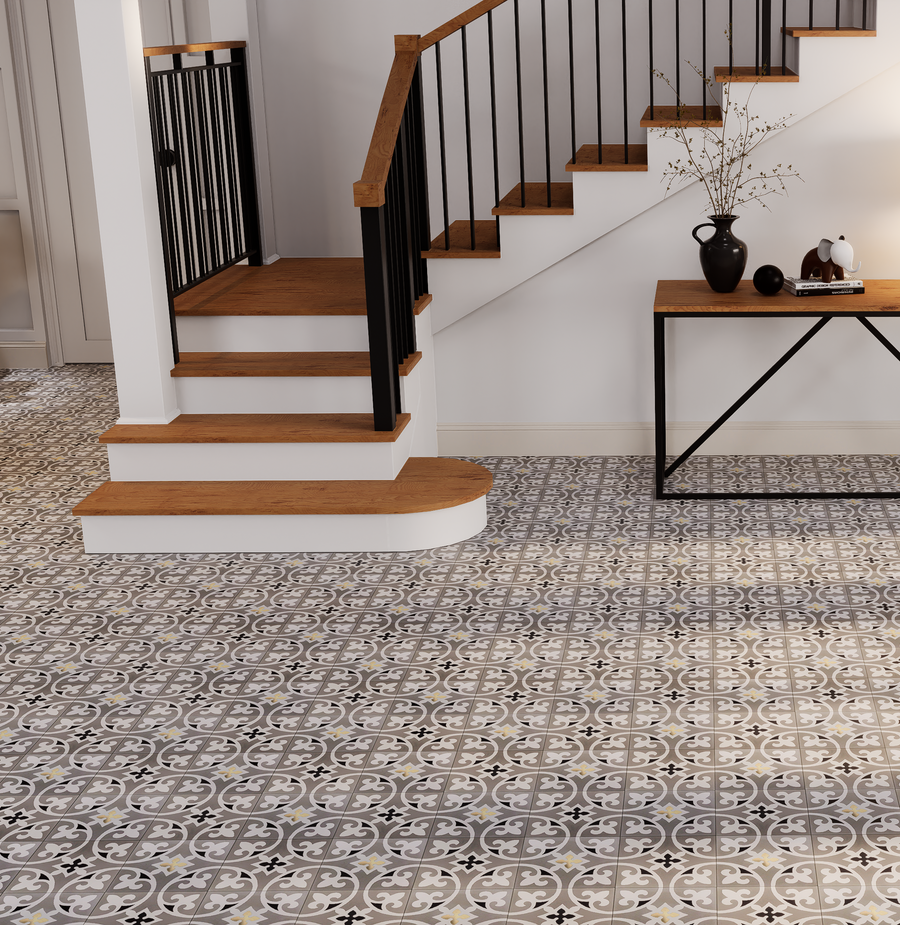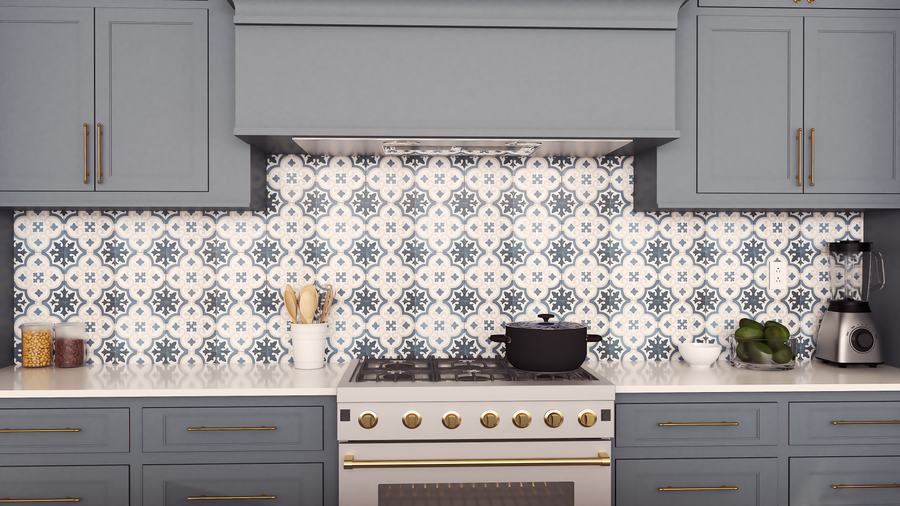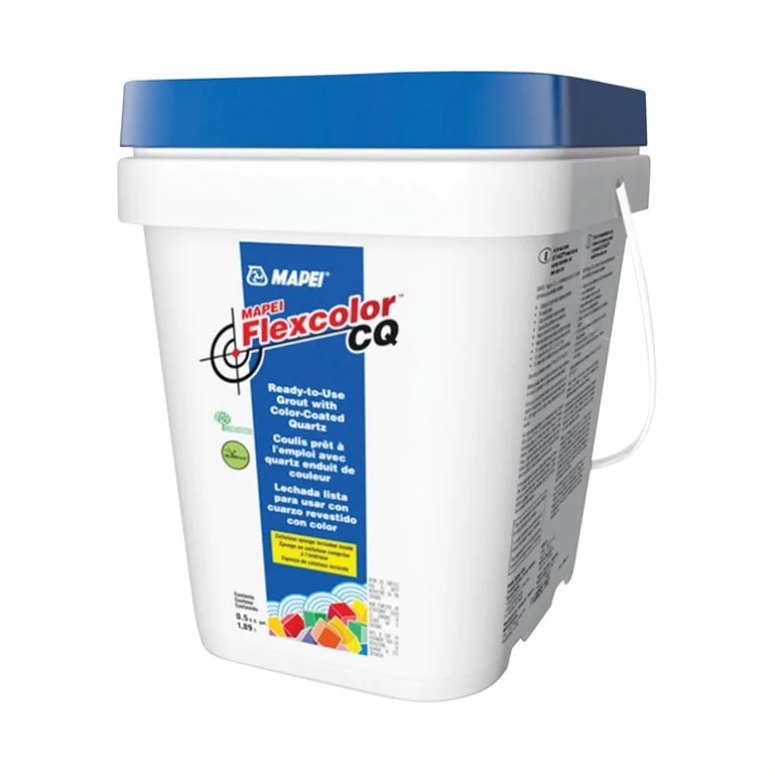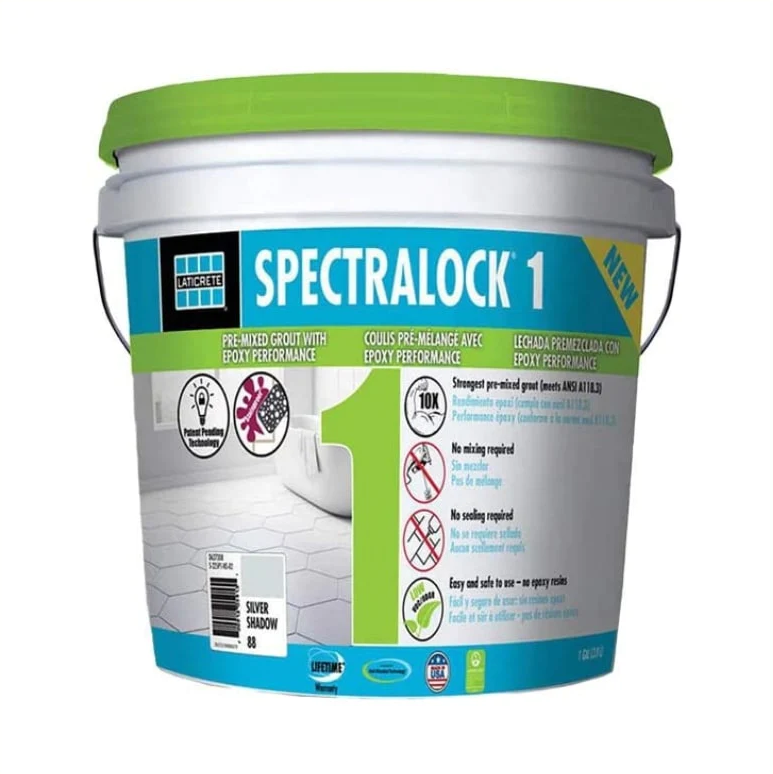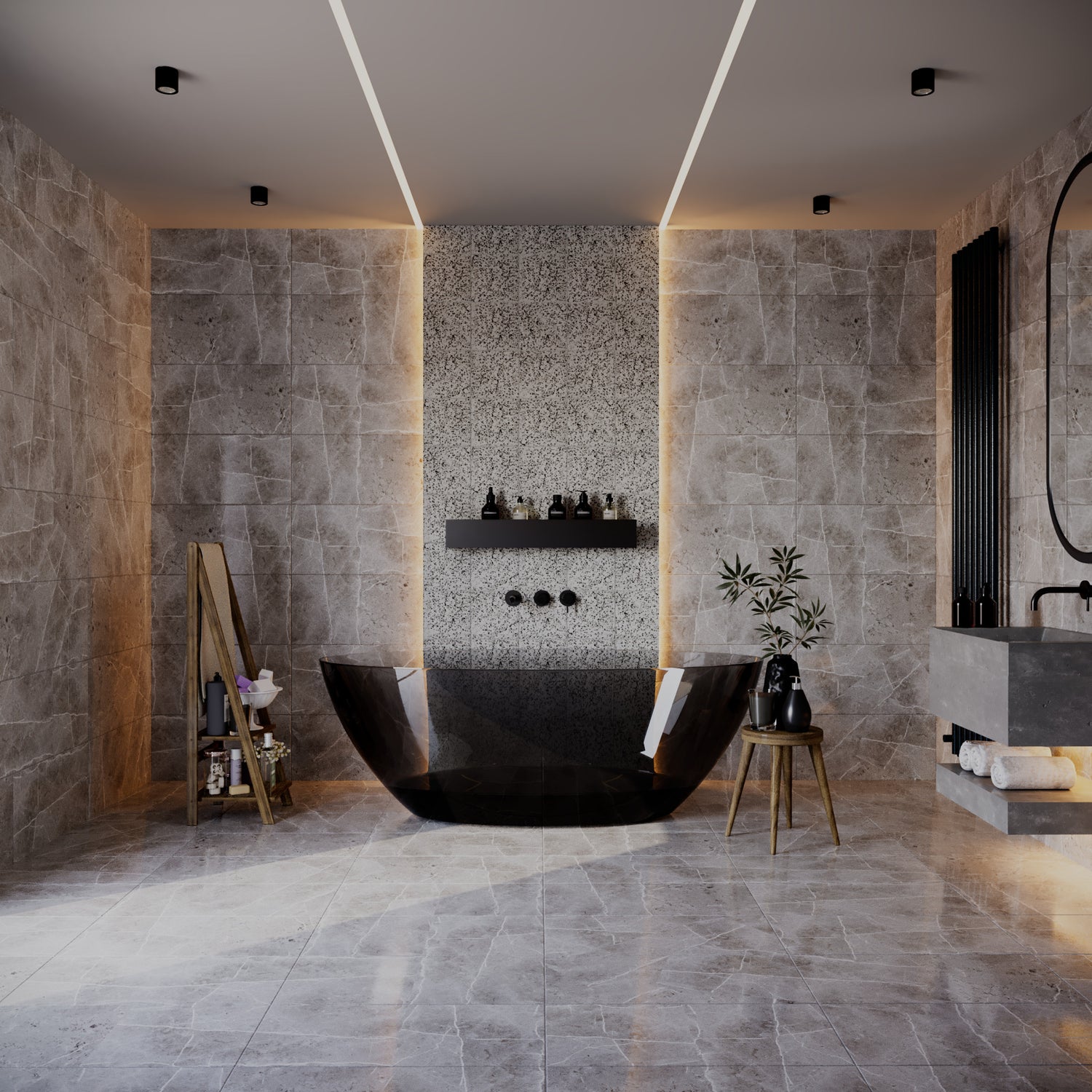
Our Company
We’re LiLi Tile, a family-led company built on creativity, craftsmanship, and a love for color.
Our story began over 20 years ago in the construction materials world. In 2014, we decided to bring more artistry into it. Inspired by heritage techniques and modern design, we set out to create tiles that turn everyday spaces into lasting statements.
Today, our collections span cement, ceramic, Zellige, porcelain, terrazzo, and terracotta - each one handcrafted with care and cultural authenticity. Our products are designed in the United States and brought to life by skilled artisans around the world, including Vietnam, Morocco, Spain, and Thailand.
From our fully stocked warehouse in New Jersey, we proudly serve designers, architects, and homeowners across the U.S. Each pattern begins with inspiration drawn from nature, travel, and the beauty of handmade imperfection. Every tile carries the touch of the human hand, a reminder that true craftsmanship never goes out of style.
At LiLi, we believe in originality, honesty, and color.
We believe in creating spaces that tell stories, in doing things the right way, and in delivering joy through design.
Most of all, we believe that when good people make good things, beautiful spaces follow.
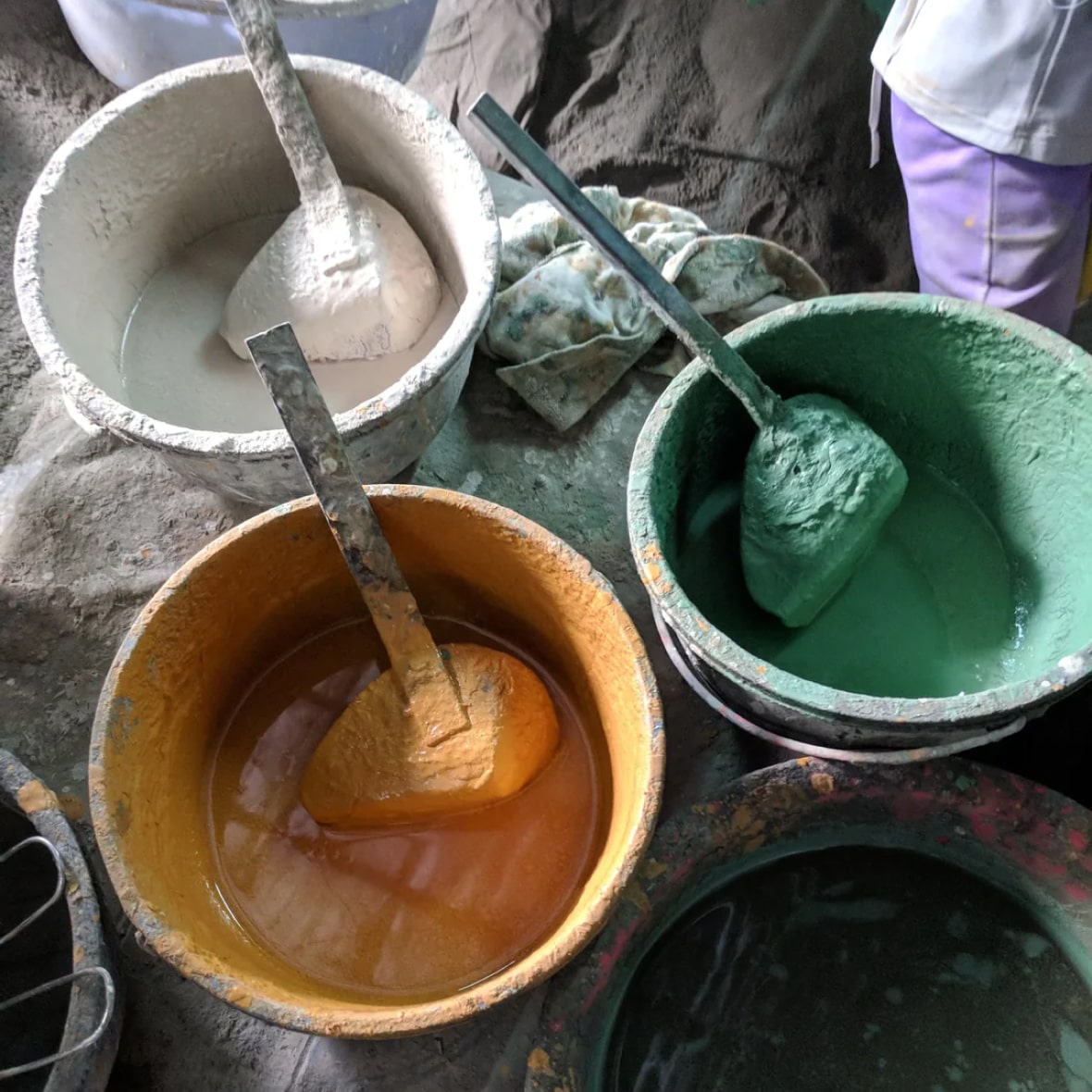
History of Cement Tiles
Cement tiles have been part of design history for more than 170 years, first emerging in Catalonia in the mid-1800s. Their beauty, durability, and versatility quickly caught the eye of architects and artisans across Europe, earning international acclaim at the Paris Exposition of 1867.
Unlike traditional ceramics, cement tiles required no kiln or firing, a revolutionary process at the time that made them both sustainable and enduring. Their intricate patterns and matte surfaces became hallmarks of elegance in grand homes, palaces, and public spaces throughout the world.
When the French introduced the craft to Vietnam, the country’s high-quality cement and expert artisans elevated the technique even further. Today, these same time-honored methods continue, with cement tiles still handcrafted in Vietnam, Morocco, Spain, and Mexico, each region adding its own cultural character and artistry.
From the Palace of Versailles to the Grand Bazaar of Istanbul, cement tiles remain a symbol of craftsmanship that withstands time, trends, and generations of design evolution.
How It’s Made
Every LiLi cement tile is handmade, crafted one at a time with care, precision, and individuality. No two are ever exactly alike, and that’s what makes them special.
It all begins with a brass mold, created by fusing custom shapes together to form each design. From timeless classics to modern motifs, our design team works to capture beauty in every pattern. Because each tile is made individually, even custom creations are entirely possible.
Once the mold is set, pigmented cement is carefully poured into each section and topped with a blend of portland cement, sand, and marble powder. The tiles are then hydraulically pressed with 3,000 psi of pressure and cured for 11 days, allowing them to reach their full strength and signature matte finish.
This process has remained unchanged since the 1850s, a deliberate resistance to mass production in favor of artistry, integrity, and lasting quality.
Cement tiles require no heat or energy to produce, making them an environmentally responsible choice. They are non-flammable, fully recyclable, and designed to last for generations.
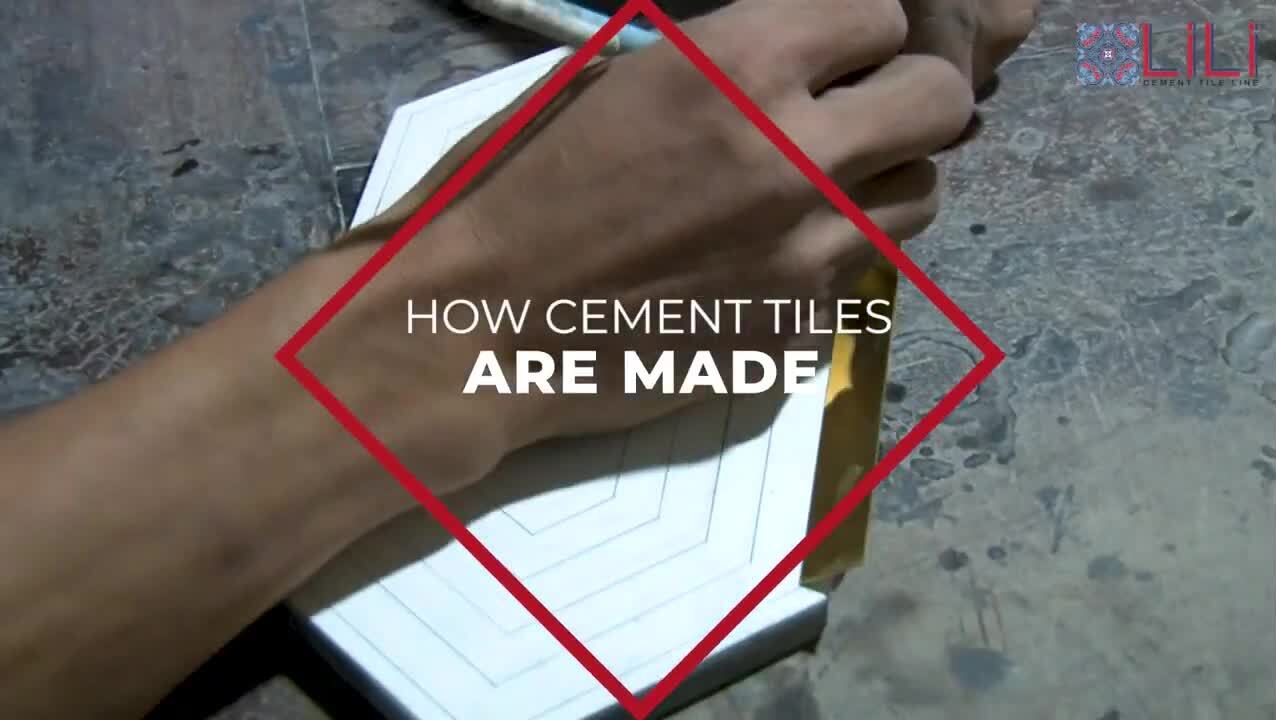
Every LiLi Zellige tile is shaped, cut, and glazed entirely by hand using age-old Moroccan techniques passed down through generations of master artisans. Each piece carries the subtle marks of its maker, a reminder that beauty lives in the details.
It all begins with natural clay sourced from the Fez region of Morocco, prized for its rich mineral content and distinctive tone. The clay is kneaded with water, molded, and left to dry under the sun before artisans hand-apply mineral glazes in soft, luminous hues.
Once ready, the tiles are fired in traditional kilns fueled by olive pits, a sustainable practice that brings out the glaze’s depth, variation, and signature sheen. After firing, each piece is hand-chiseled into shape, ensuring every tile is one of a kind.
This centuries-old craft has remained largely unchanged since the 10th century, preserving the soul and artistry of Moroccan design.

Installation & Sealing
When installed properly, cement tiles will last for generations to come. Use these tips as a helpful guide to installing your tiles. We highly recommend consulting a professional contractor with prior experience in cement tile installation to ensure the best results.
The appeal of cement tiles lies in their handcrafted beauty, which may include subtle color variations from tile to tile. To evenly distribute this natural variation, we recommend removing the tiles from their boxes and arranging them on the floor prior to installation. This process, known as a dry lay, allows you to visualize and adjust the layout—especially useful for tiles with interlocking patterns.
Installation Recommendations
Both thinset and mud bed installation methods are acceptable. However, the most effective approach is as follows:
- Ditra (by Schluter) should be applied first as the underlayment. This layer provides exceptional crack isolation and moisture control.
- If the substrate is not perfectly level, apply a thin layer of self-leveling compound on top of the Ditra (following product compatibility guidelines).
- Proceed with the tile installation using proper techniques, including back-buttering and maintaining grout lines.
Sealing Guidelines
Due to the porous nature of cement, tiles must be sealed to prevent liquid absorption and staining.
Primer is required after installation but before grouting to protect the surface and preserve the tile’s natural color and finish.
We strongly recommend the following products, applied in this order for the best results:
- Poseidon's Tile Primer by Tile Armor
- Quartz Based Grout
- Athena's Heavy Duty Cleaner
- Zeus Tile Sealer
This combination, specifically formulated for cement tiles, provides high-performance durability against moisture, stains, and environmental wear.
All new LiLi Collection tiles are pre-sealed for handling. If your box has a yellow sticker, the tiles can be sealed after grouting.
LiLi cement tiles include an installation guide in every box. We strongly encourage you to thoroughly review the guide before starting the installation process.
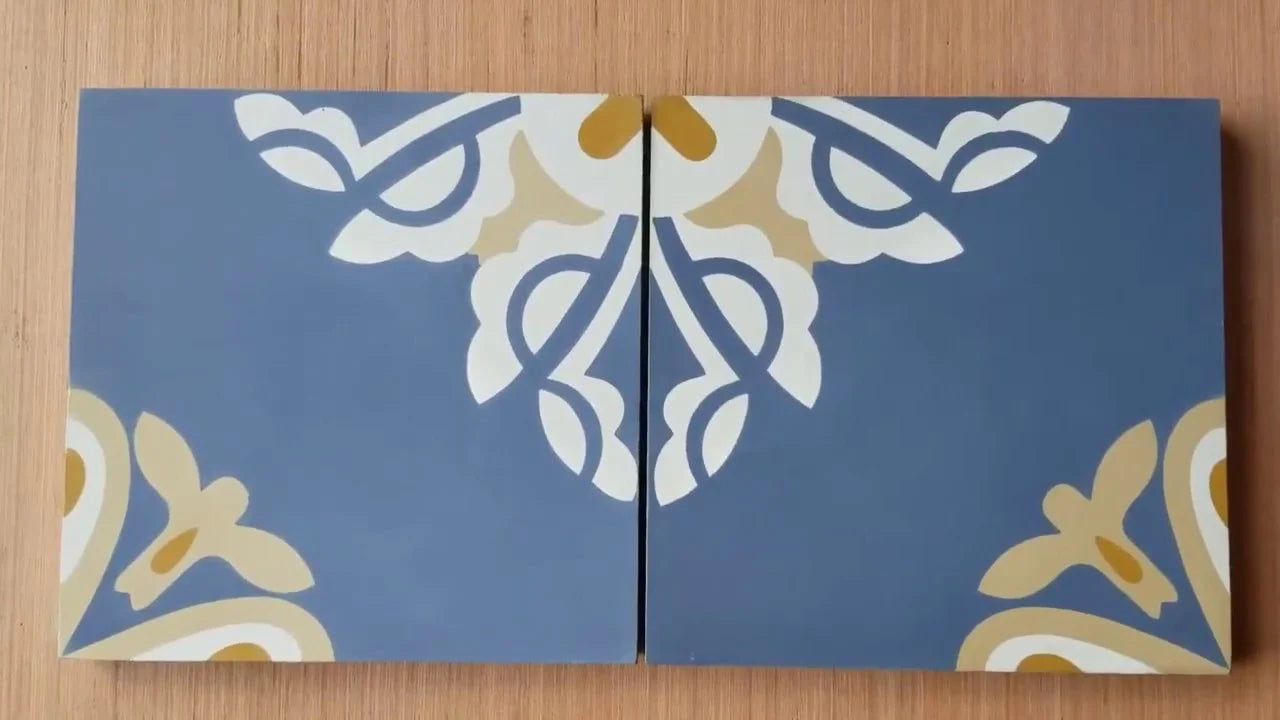
Suggested Grouts
Due to their porosity, cement tiles absorb any pigment present in the grout they are installed with. Our suggested grouts are quartz-based, which means there is no pigment present giving them their color, just the naturally occurring colors of quartz.
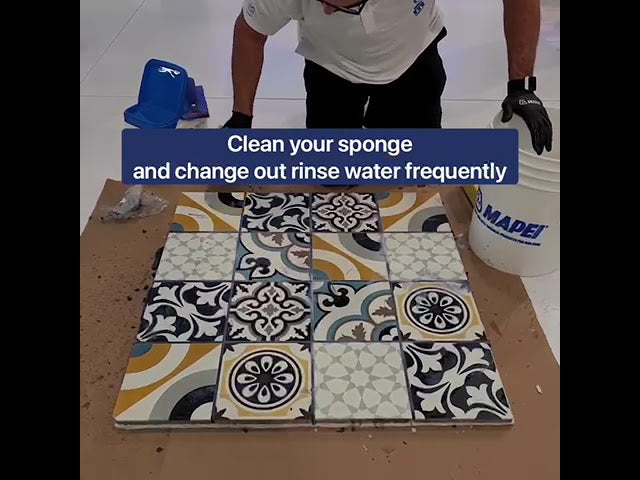
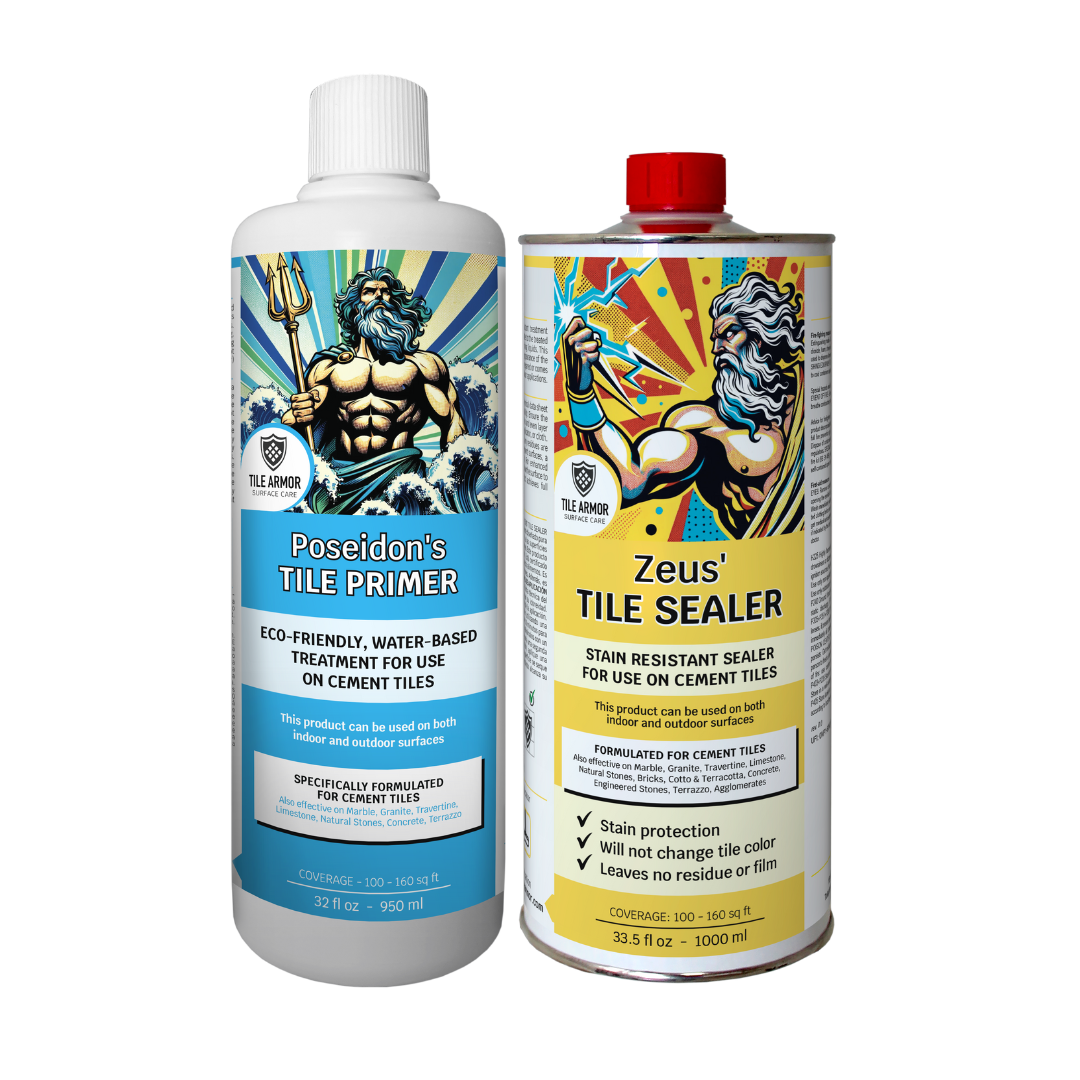
Sealer
For optimal tile protection across diverse settings, we recommend using the combination of Poseidon’s Tile Primer and Zeus’ Tile Sealer by Tile Armor. Specifically formulated for cement tiles, this powerful duo offers exceptional durability and high-performance protection against moisture, stains, and environmental wear, preserving the tile’s natural color and finish. Ideal for a wide range of indoor and outdoor applications—including building facades, floors, walls, showers, pool surrounds, patios, kitchens, and entertainment areas—this combination creates a durable, breathable barrier that maintains the original appearance of cement tiles. Surfaces treated with Poseidon and Zeus are easier to clean, quick-drying, and stand up to regular cleaning, making them perfect for both residential and commercial applications.
Benefits
- Premium Stain and Moisture Protection: Provides superior resistance against water and oil-based stains, helping to maintain the original look of your tiles.
- Deep Penetration and Long-Lasting Bond: Poseidon’s Tile Primer offers a deep-penetrating base layer, while Zeus’ Tile Sealer bonds permanently for lasting protection. This combination ensures durability and extended tile life.
- Retains Natural Color and Finish: The sealer duo preserves the natural look of tiles without altering color or gloss.
- Easy-to-Clean, Quick-Drying Surface: Treated surfaces are easier to maintain, drying quickly even after heavy moisture exposure.
- Versatile for All Environments: Suitable for indoor and outdoor use, residential or commercial.
Maintenance Guide
After installation, LiLi tiles require little maintenance. When cleaning, a pH neutral cleaner must be used. No grit, ammonia, bleach, or vinegar as these may damage your tiles. If heavily soiled, we suggest using Athena's Heavy Duty Cleaner by Tile Armor. For regular cleaning we suggest using Aphrodite's Daily Cleaner by Tile Armor.
If your tiles get scratched, 220 grit sandpaper can be used to buff out scratches – they must then be resealed. For external installations only, cement tiles must be resealed every year in order to protect them from prolonged sun exposure.
Brass Maintenance
Cement tiles with brass inlays are prone to tarnish and will require additional maintenance both before as well as after installation.
Tiles must be inspected by installer upon receipt. Any tarnish accumulated can be removed with wet sanding using 400 grit sandpaper. This process can be done before the tiles are installed or once they are installed. The wet sanding process can be repeated as many times as necessary to keep the brass looking shiny & new. However, tiles must be re-sealed after each wet sanding session.
LiLi cement tiles embraces the natural aging process of brass and encourages the vintage look
Videos
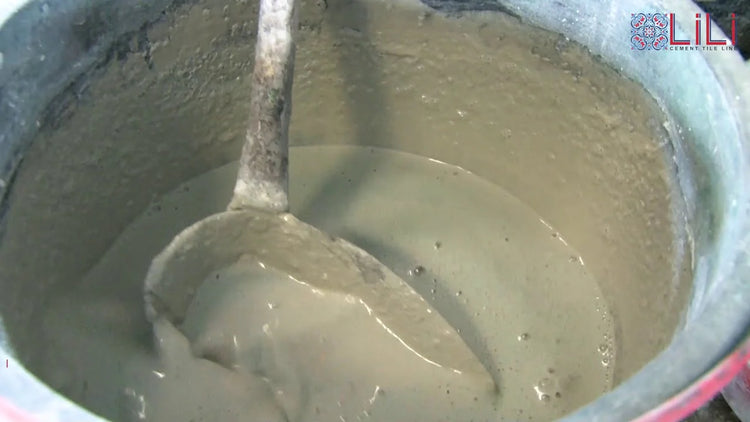
How to Cut Brass Insert Cement Tiles
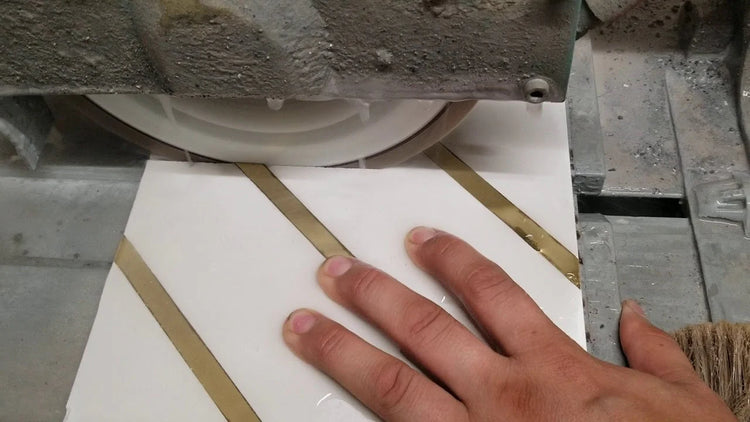
How to Cut Brass Insert Cement Tiles
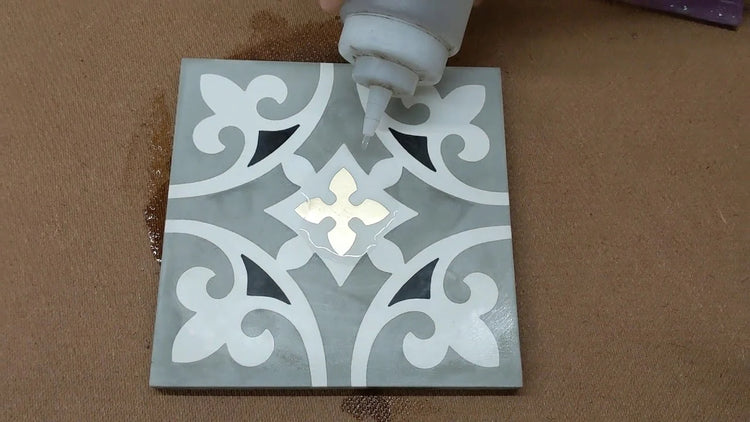
How to Clean Tarnished Brass Accents on Cement Tiles
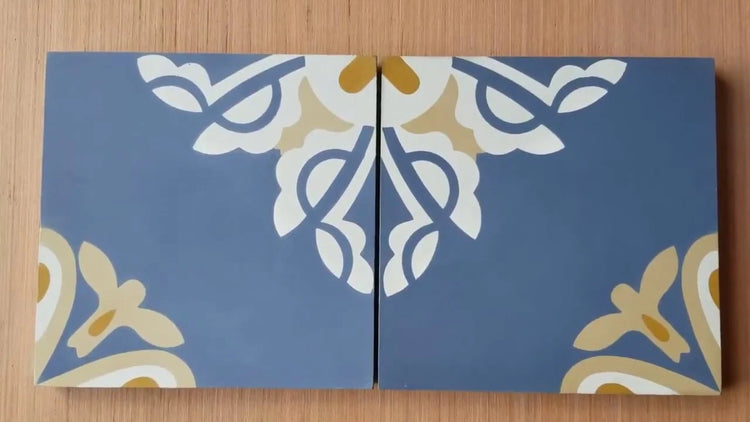
How to Check if Your Cement Tiles Are Sealed
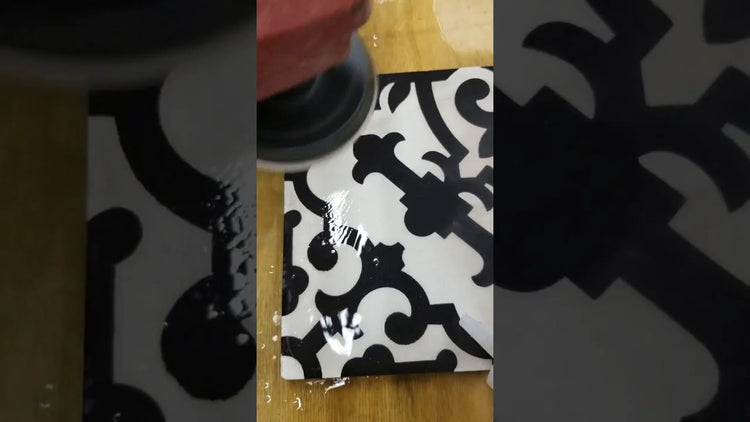
How to Remove Scratches from LiLi Cement Tiles
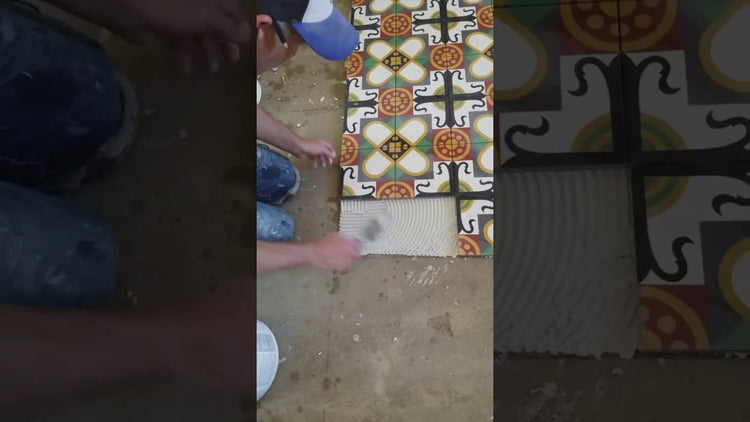
LiLi Cement Tiles Installation
FAQs
All of our cement tiles are handmade in Vietnam using the same traditional methods first invented in the 1850s
Absolutely! In fact, one of the most popular applications of our tiles is in the shower! Our tiles pass the DCOF slip-resistance test and are great for both residential and commercial applications. The only application not recommended is inside a swimming pool.
Please note, any of our tiles with metal inserts (brass, copper, aluminum) may slightly tarnish in wet areas but are still equally suitable and can easily be cleaned
Yes! Our cement tiles are perfectly safe over heated floors.
Yes! When properly sealed, LiLi cement tiles can be installed almost anywhere - except inside a swimming pool or water line. However, they’re perfectly suitable for pool surrounds, outdoor decks, outdoor showers, walkways, and even pavements (with proper foundations). As with all installations, we strongly urge using Zeus' Tile Sealer to prevent stains and discoloration.
Please note, bright colors like blues and reds can be prone to fading if installed under direct sunlight.
Most in-stock orders ship next business day from our NJ warehouse.
Since our tiles are not baked in an oven or fired in a kiln they do not shrink or expand, which means they can be installed with or without grout. Although it is a personal preference, most customers choose to use grout on floor installations. Please note, standard grout is not recommended for use with cement tiles as it contains color pigments that are prone to stain the tiles. Please refer only to our suggested quartz-based grout list.
The only instance where grout is strongly suggested is any application in direct contact with water. This is done to avoid any mold issues caused by water permeating through the joints and damaging the surface behind the tiles.
Whether installing with or without grout, we strongly urge the use of a membrane to prevent tiles from cracking if there is any shift in the foundation.
Cement tiles are naturally quite porous, which means if left unsealed they will absorb any liquid and stain. This is why we strongly urge all our tiles to be sealed with Zeus' Tile Sealer. This sealer will create a protective coat to prevent stains from instantly absorbing. As always, we suggest cleaning up spills as soon as possible. Lookin’ at you, red wine!
Since cement tiles are handmade, there may be slight variations between different lots. This is why we suggest ordering 10-15% extra. This overage accounts for cutting purposes, breakage during installation, greater range of selection, and extra material if needed in the future as future lots may not match.
Yes, all of our cement tiles are perfectly suitable and safe to be used over radiant heating.
Any standard thinset is perfectly fine (modified or unmodified). Please be sure to backbutter each tile before application.
Since our tiles are handmade, all custom orders take 12-14 weeks from order confirmation. Our minimum order quantity for custom tiles is 10 boxes.
Yes they do! You can find our spec sheet here
How to Order
Browse our vast collection of cement tiles below & pick the one that speaks to you!
We always suggest ordering a sample first so you know exactly what to expect
Don’t Forget to Protect Your Tiles!
Our suggested primer + sealer combo will help keep your new tiles looking beautiful for years to come

